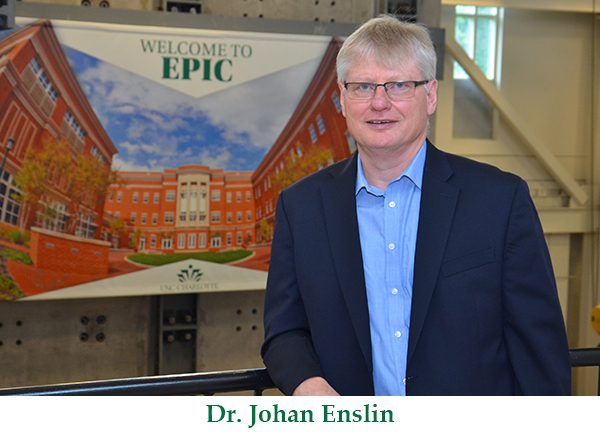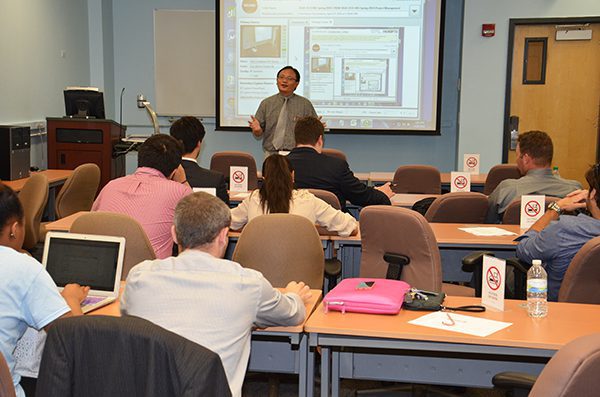New Program Offers Advanced Studies in Energy

Offering advanced studies in energy, a new program within the Master of Science in Engineering degree at UNC Charlotte provides non-engineers and engineers alike the chance to further their careers in power and energy. The energy study focus is open to all students with backgrounds in Science, Technology, Engineering and Mathematics (STEM) fields such as physics, environmental studies, computer science, all engineering and engineering technology disciplines, earth science and more.

“The energy program is really trying to address the needs of a large population of undergraduate students who want to further their education,” said Dr. Johan Enslin, director of the Energy Production and Infrastructure Center (EPIC) at UNC Charlotte. “We went through discussions with several other universities including UNC-Chapel Hill, Appalachian State and Pembroke, and discovered there is a lot of interest in this program. Especially for students who have an interest in careers in energy and the environment, but don’t have an engineering degree.”
The goals of the program include teaching advanced skill sets that will be valuable in the modern power industry. Energy companies are now transitioning to central and distributed resource systems, which require high reliability of operation at low costs. The new energy program teaches skills such as understanding the engineering processes involved in the generation, transmission and delivery of electricity, using a systems approach to analyze energy industry challenges, addressing the impacts of climate change, and using renewable energy sources in delivering needed power.
As a 30-credit-hour program, the MSE requires 12 credit-hours of core courses. For students in the energy program, the core courses are Energy and Environment, Introduction to Energy Systems, Topics in Applied Energy, and Energy and Environmental Economics.

Fifteen credit-hours are required in elective courses in topics such as renewable energy, green building, control systems, energy markets, environmental risk management and energy industry case studies. A three-credit-hour industry-sponsored project is also required.
“Basically, the energy program was developed for students who don’t have a background in engineering to start with,” Dr. Enslin said, “so the required courses have some engineering components, but also a lot of emphasis on things such as economic and environmental policy, energy policy and energy analytics. This is not a research-oriented degree. It does requires an industry-sponsored project, which can be part of an internship.”
Some of the energy classes will be offered in collaboration with the Masters of Engineering Management program and the UNC Charlotte MBA program. A number of these courses are currently offered online, and the goal is to offer more of the energy courses online in the future.
The ultimate goal of the concentration is to help graduates find rewarding jobs in the energy industry.
“We’re offering this concentration in the Lee College of Engineering to help students get job opportunities in the power industry that are linked to engineering,” Dr. Enslin said. “This degree will give them an educational background that will lead to energy engineering job opportunities.”